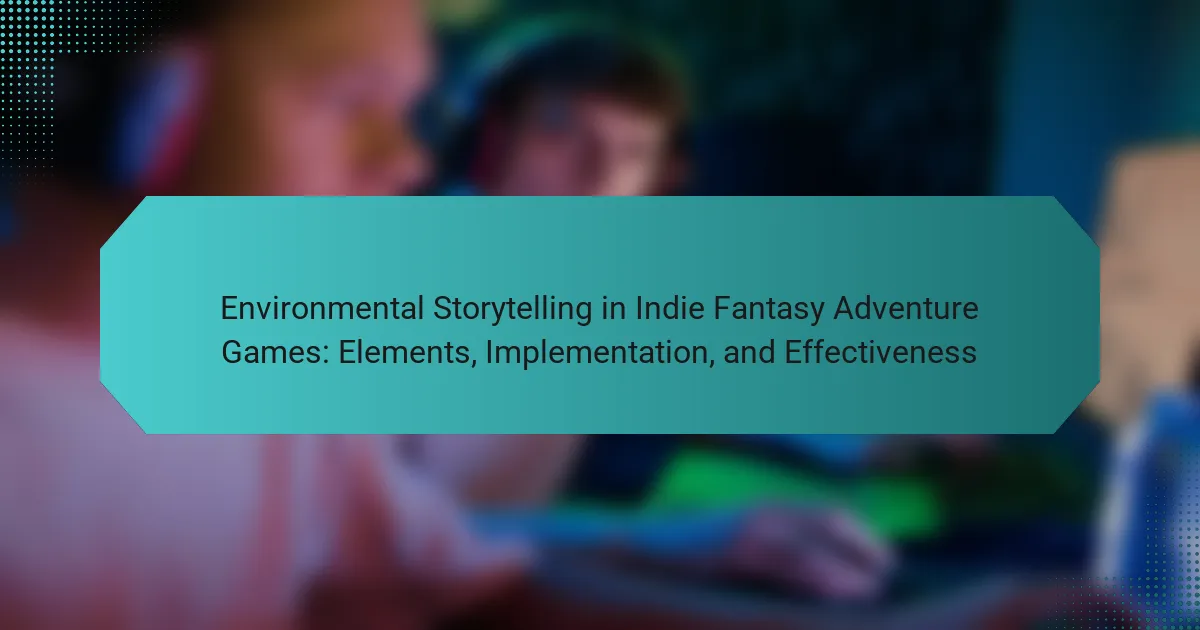Environmental storytelling in indie fantasy adventure games enhances player immersion and emotional connection. This article explores key elements like environmental design and player interaction, examines implementation strategies, and discusses the effectiveness of this narrative approach. It also highlights the unique challenges indie developers face and offers insights for enhancing storytelling through immersive world-building and interactive […]
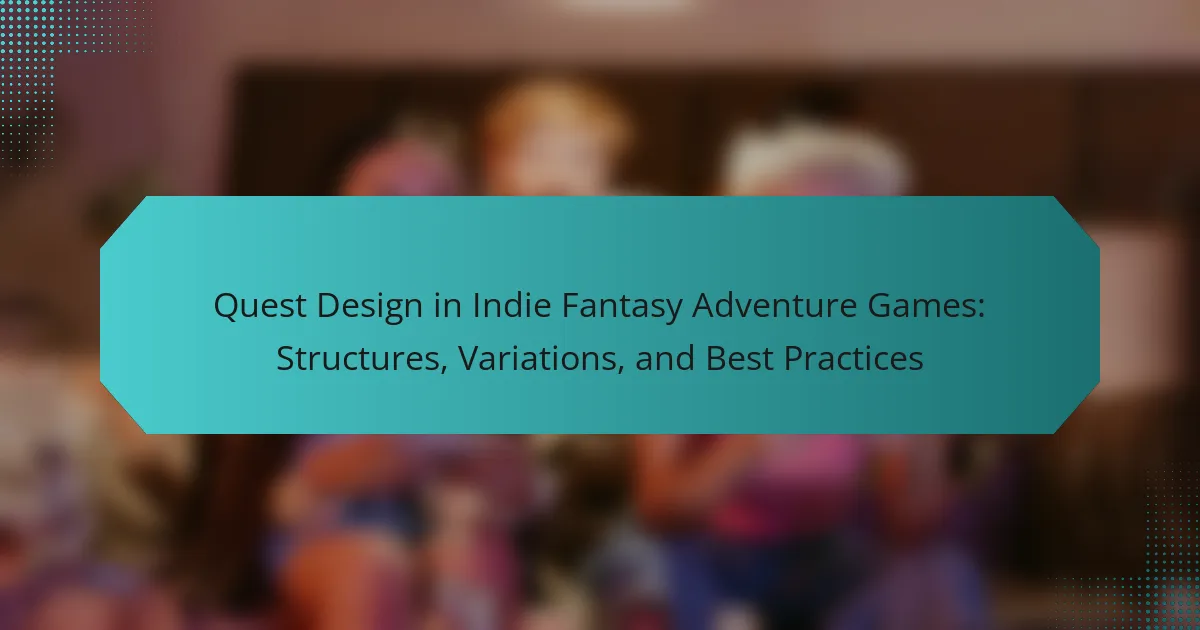
Quest Design in Indie Fantasy Adventure Games: Structures, Variations, and Best Practices
Effective quest design in indie fantasy adventure games enhances player engagement and narrative depth. This article explores fundamental principles, variations in quest types, best practices, and common pitfalls in quest design. It highlights the importance of player agency, dynamic objectives, and environmental storytelling for immersive gameplay experiences. Additionally, it examines innovative designs in recent indie […]
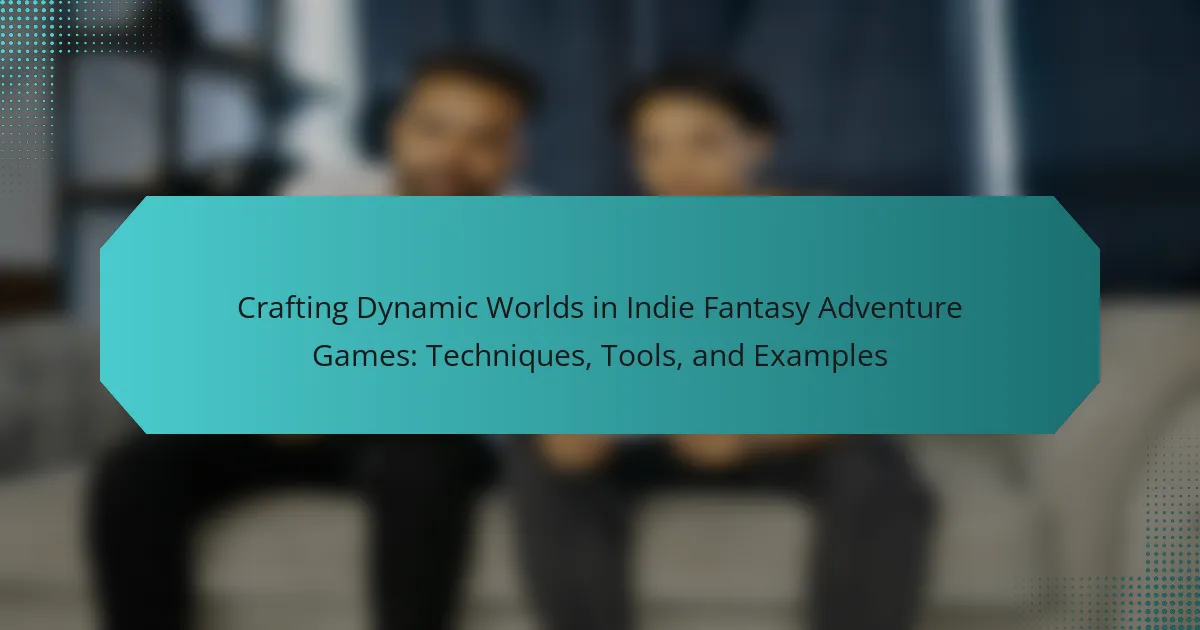
Crafting Dynamic Worlds in Indie Fantasy Adventure Games: Techniques, Tools, and Examples
Creating dynamic worlds in indie fantasy adventure games enhances player engagement and immersion. Key techniques include procedural generation for diverse landscapes, player agency that shapes narratives, and deep lore that enriches storytelling. Successful examples like “Hollow Knight” and “Disco Elysium” showcase innovative design and cultural influences. Developers face challenges in balancing player freedom with narrative […]

Art Styles in Indie Fantasy Adventure Games: Trends, Techniques, and Cultural Influences
Indie fantasy adventure games feature diverse art styles that enhance player immersion and storytelling. Key styles include pixel art, hand-painted visuals, and low-poly designs. Cultural influences draw from folklore and mythology, shaping character design and environmental aesthetics. Technological advancements allow for innovative techniques, making unique artistic expression more accessible to indie developers. What are the […]
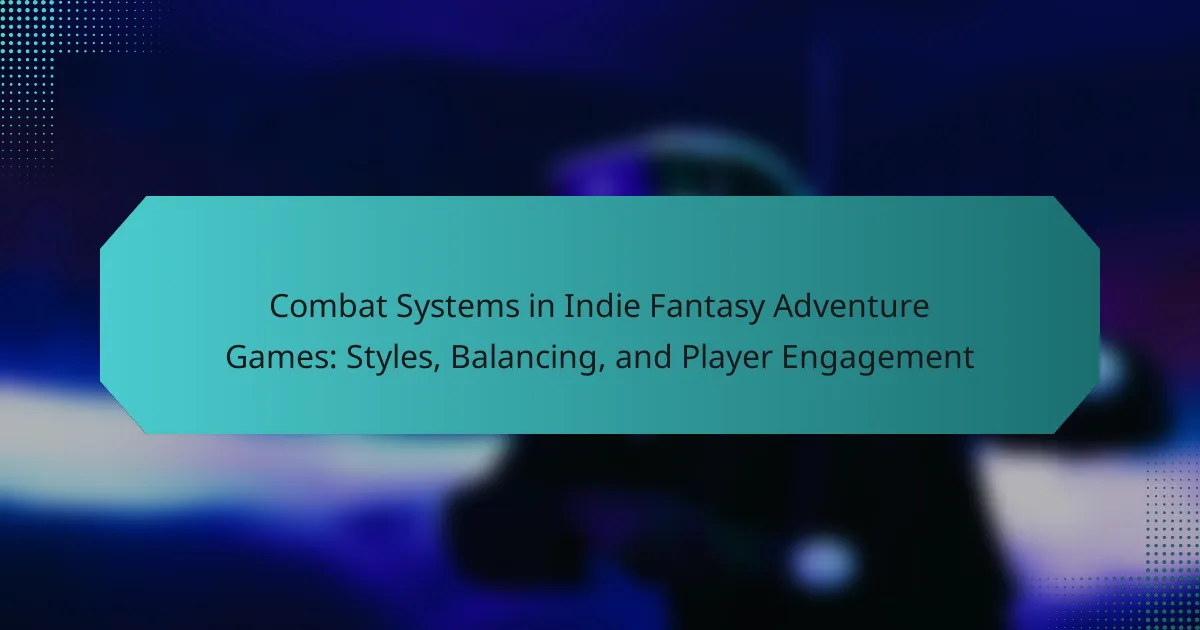
Combat Systems in Indie Fantasy Adventure Games: Styles, Balancing, and Player Engagement
Combat systems in indie fantasy adventure games significantly impact player engagement and overall experience. Key styles include real-time action, turn-based strategy, and hybrid systems. Balancing these mechanics involves iterative testing, adaptive difficulty, and player feedback. Unique features like customizable skill trees and dynamic AI further enhance immersion and strategy. What are the key combat styles […]
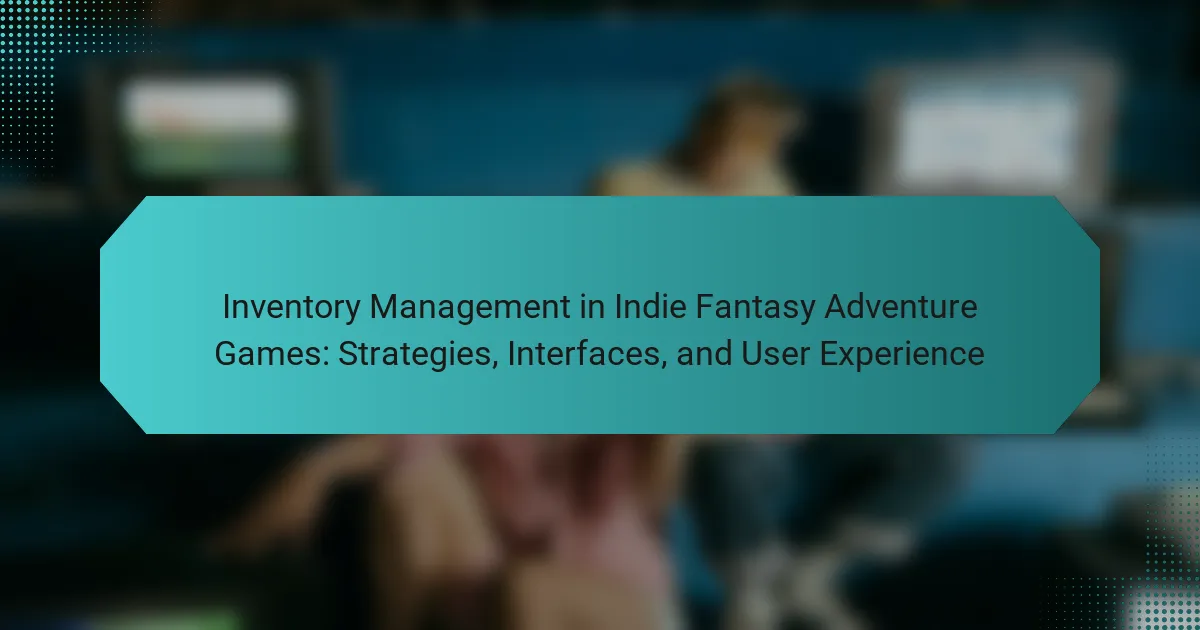
Inventory Management in Indie Fantasy Adventure Games: Strategies, Interfaces, and User Experience
Effective inventory management is crucial for enhancing player engagement in indie fantasy adventure games. This article explores strategies for categorising items, optimising user interfaces, and improving overall user experience. Key features such as customisable layouts, sorting options, and responsive feedback will be discussed. Additionally, the impact of platform-specific design on inventory systems will be examined […]
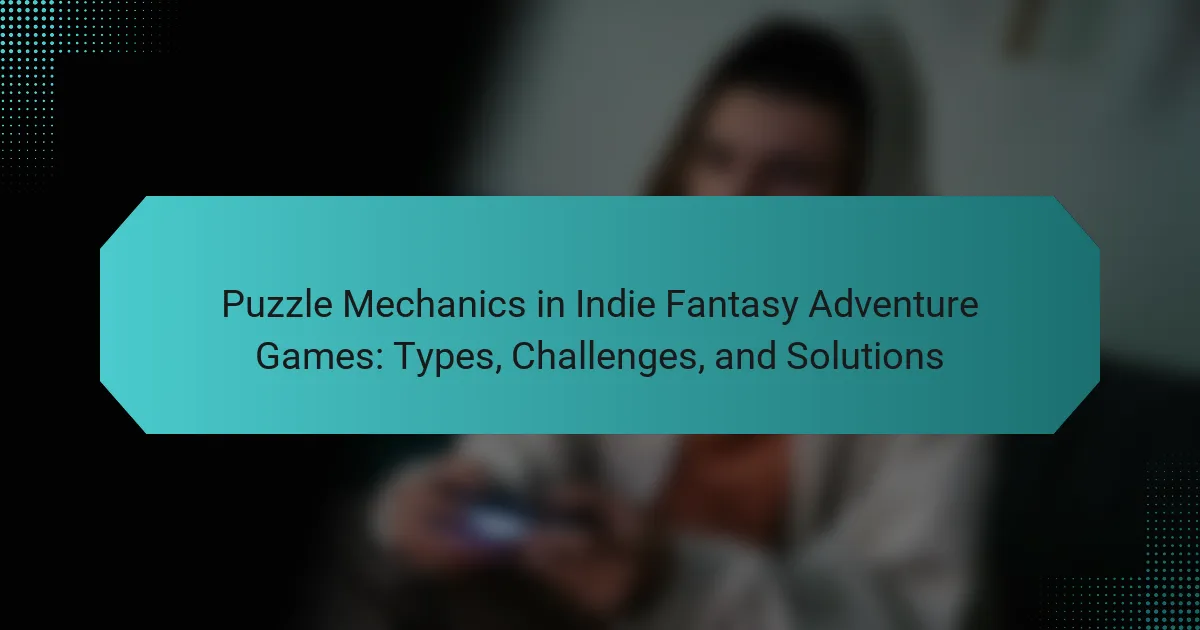
Puzzle Mechanics in Indie Fantasy Adventure Games: Types, Challenges, and Solutions
Puzzle mechanics in indie fantasy adventure games present unique challenges and opportunities for developers and players alike. This article explores various types of puzzles, including environmental and logic puzzles, while addressing design challenges like balancing difficulty and maintaining narrative coherence. It also highlights innovative solutions such as adaptive difficulty and procedural generation that enhance player […]
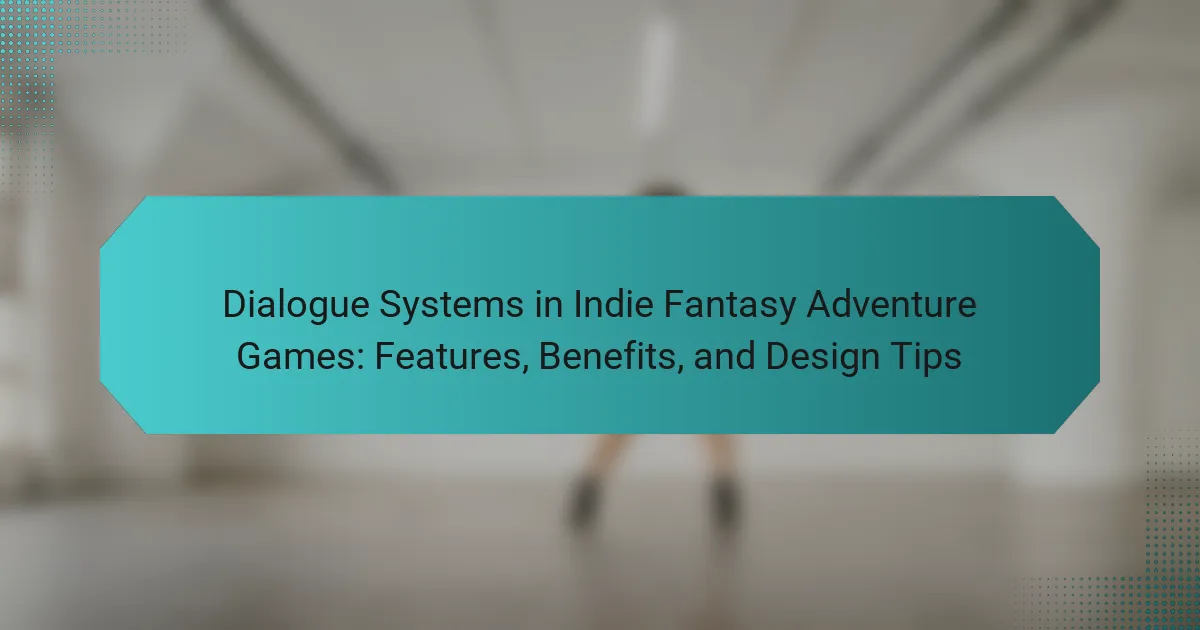
Dialogue Systems in Indie Fantasy Adventure Games: Features, Benefits, and Design Tips
Dialogue systems in indie fantasy adventure games enhance player engagement and immersion through dynamic storytelling and meaningful interactions. This article explores key features like branching narratives, character depth, and cultural influences. It also provides design tips for creating effective dialogue systems that adapt to player choices and enhance replayability. Emerging trends in 2025 will further […]
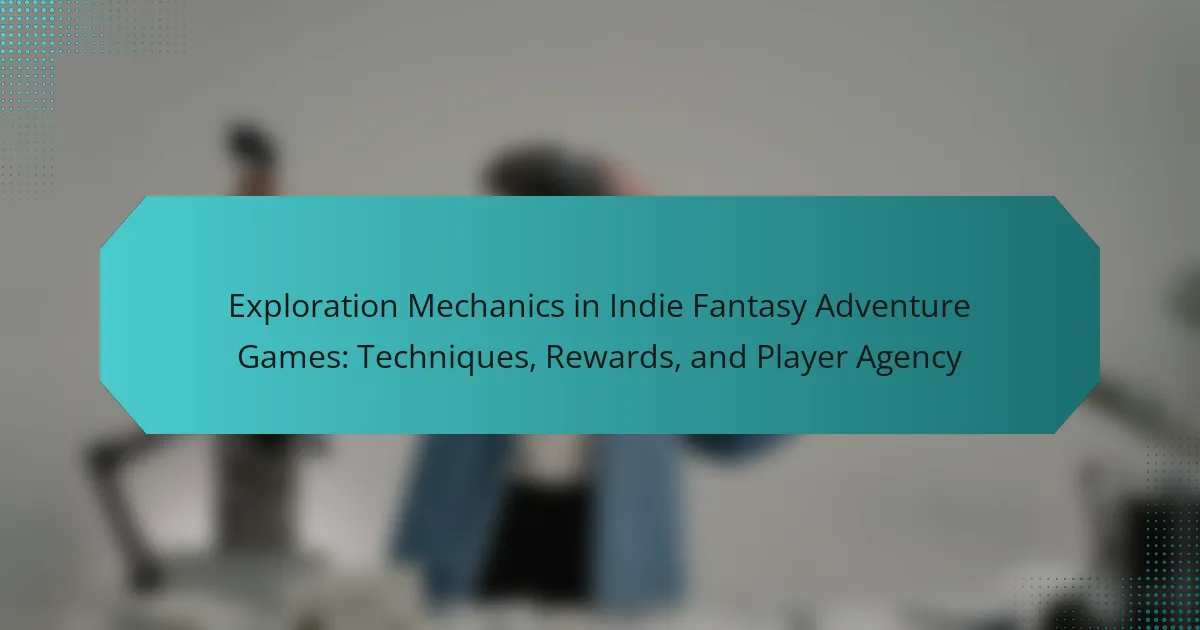
Exploration Mechanics in Indie Fantasy Adventure Games: Techniques, Rewards, and Player Agency
Exploration mechanics in indie fantasy adventure games enhance player engagement and immersion. Key techniques include open-world design, environmental storytelling, and dynamic quest systems. Players are rewarded with unique items and lore, fostering agency and replayability. Cultural influences shape these mechanics, leading to varied gameplay experiences across different regions. What are the key exploration mechanics in […]
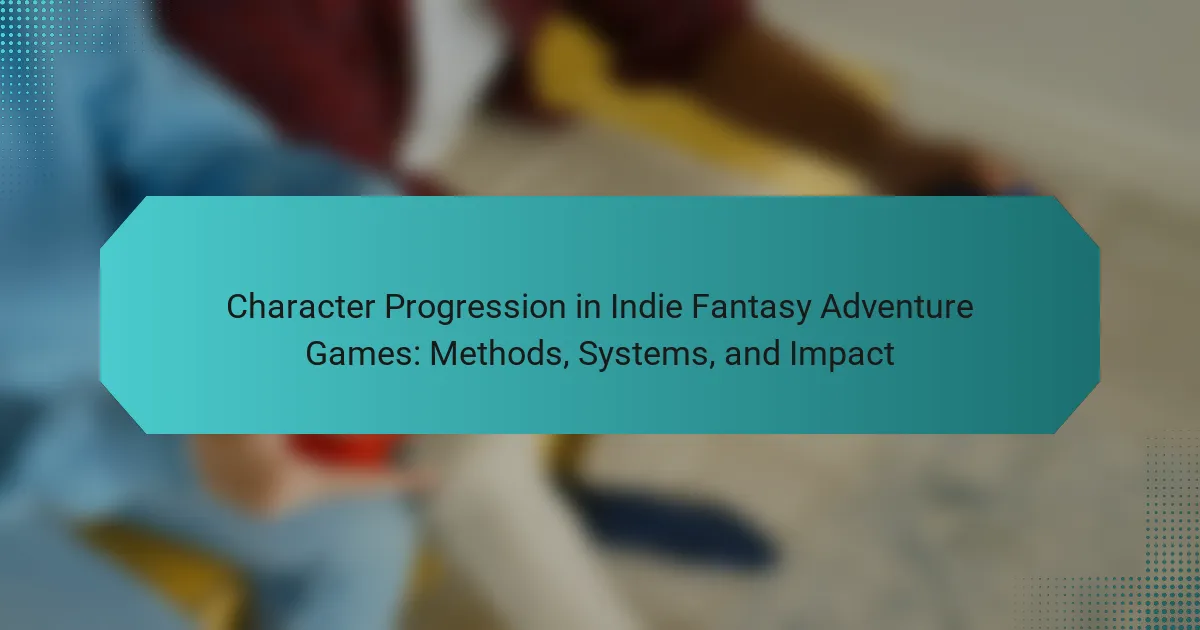
Character Progression in Indie Fantasy Adventure Games: Methods, Systems, and Impact
Character progression in indie fantasy adventure games enhances player engagement and satisfaction. This article explores methods like skill trees, experience points, and narrative choices. It examines how these systems impact gameplay dynamics and player investment. Additionally, it highlights unique and rare attributes that contribute to immersive experiences. What are the key methods of character progression […]
